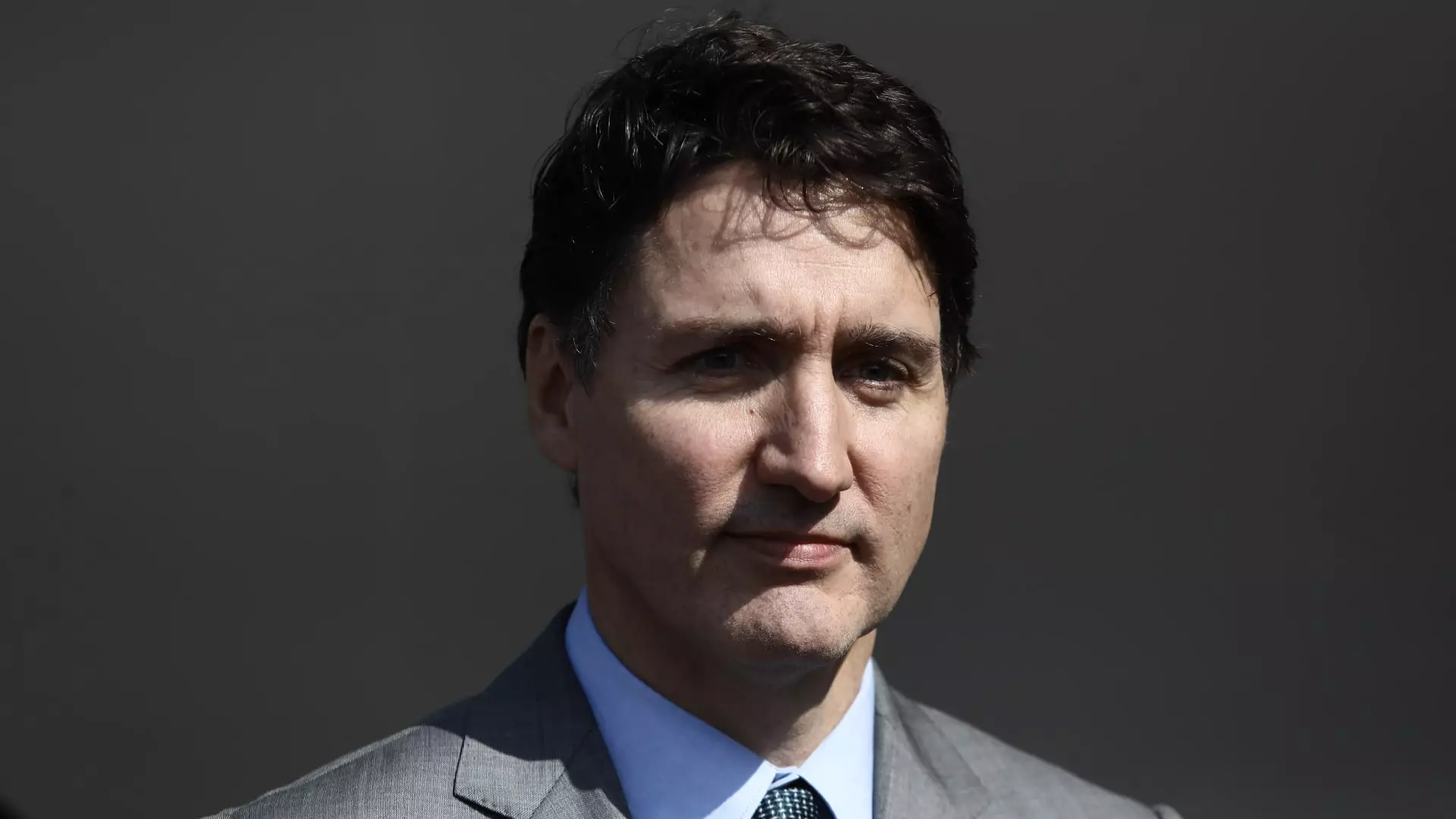The landscape of Canadian politics may be on the verge of a significant transformation, with reports suggesting that Prime Minister Justin Trudeau is contemplating stepping down as leader of the Liberal Party. This speculation arises amid a series of troubling polls indicating that the party may face a severe defeat against the Conservative opposition in an upcoming election. While no formal announcement has been made, sources close to Trudeau hinted at the possibility of an impending decision, which has galvanized discussions among Liberals as they prepare for potential shifts in leadership just weeks before a critical election deadline.
Trudeau’s leadership has been under scrutiny, particularly over the last few months, as members of the party express their concerns regarding the dismal polling results. The tone of urgency has been palpable, with many Liberal parliamentarians publicly advocating for a change in command. This call for a renewed leadership is not merely a reflection of discontent; it also underscores the party’s fears of losing its foothold in Canadian politics.
Assuming office in 2015 during a time when the Liberal Party was in disarray, Trudeau initially revived the party’s fortunes with an optimistic platform known for its commitment to progressive ideals—particularly social justice and environmental sustainability. However, as his prime ministership progressed, the challenges of governance and the realities of political life began to weigh heavily on his administration. For Trudeau, the ambitious promises to combat climate change and empower marginalized communities gradually faced the stark contrast of everyday political challenges.
These difficulties intensified with the onset of the COVID-19 pandemic, which demanded extraordinary economic responses and a reallocation of priorities that many believe detracted from his original agenda. Although his government implemented substantial fiscal measures aimed at supporting individuals and businesses during the crisis, spiraling inflation and a worsening housing market have stoked public dissatisfaction. The strained immigration policy and its impacts on housing costs also contributed to a perception of mismanagement, raising questions about Trudeau’s capabilities to steer the country through multiple concurrent crises.
Should Trudeau decide to resign, the question of succession looms large over the Liberal Party. Speculation regarding potential interim leaders, including Finance Minister Dominic LeBlanc, suggests an urgency for the party to stabilize itself during a tumultuous period. There is a range of opinions on whether the party would benefit from an immediate leadership contest or if maintaining a steady hand until the next election is preferable, but one thing remains clear: the stakes are elevated given the Liberal Party’s current standing.
Trudeau’s efforts to maintain unity within the party and fend off dissenting voices have proven increasingly challenging. Controversial decisions, such as his attempt to demote a key ally in the cabinet, have only heightened tensions and led to rifts among party loyalists. As calls for change become louder, the pressure on him to navigate this precarious moment has escalated.
As the Liberal Party reaches this potential crossroads, the implications of Trudeau’s resignation could resonate far beyond the confines of parliamentary politics. A leadership transition is not merely about who assumes the role of prime minister; it has profound consequences for the direction of Canadian policy and for the party’s internal dynamics. The collective identity of the Liberal Party, once buoyed by Trudeau’s vision, is now under scrutiny as it contemplates its path forward.
The political landscape in Canada is notable for its volatility, and the challenges ahead will not be easy. For the Canadian public, rapid changes in leadership often coincide with adjustments in policy direction and priorities. As Trudeau weighs his options against a backdrop of potential electoral defeat, the future of both the prime minister and the Liberal Party remains uncertain. The next few days could set a new course for Canadian governance as stakeholders assess the ramifications of this pivotal moment in time. The looming decisions will not only shape the immediate political environment but will also set the stage for longer-term governance strategies in an increasingly complex world.

Leave a Reply